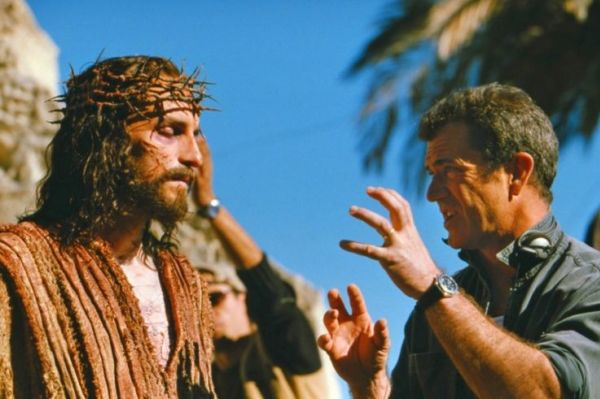So. Baptists Called to Repent, Grip Reality of 'Lostness'
Southern Baptists need to repent of their pride, boasting and disunity and return to God and His vision.
That was the sobering call Dr. Ronnie Floyd made Monday as he presented a highly anticipated report charting out a new course for the nation's largest Protestant denomination.
"We (task force) have been gripped by the reality of the lost condition of our world and about our condition as a denomination, but through this journey we have also been set on fire by the call of God to advance the gospel of Jesus Christ," Floyd, chairman of the Great Commission Resurgence Task Force, stated in a progress report. "Surely Southern Baptists can agree that we need a new and compelling vision for the future."
Last summer amid talks of a "Great Commission Resurgence," delegates of the Southern Baptist Convention overwhelmingly approved a motion authorizing the appointment of a task force charged to bring a report and recommendations to the denomination concerning how Southern Baptists can work more faithfully and effectively together in serving Christ through the Great Commission.
In other words, the panel was asked to address the question: What needs to be done?
For the past several months, the 22-member panel has been hammering out a vision and outlining steps that would move the denomination past the infighting and toward penetrating the massive "lostness" in the world.
Their first action was to get on their knees and cry out to God, Floyd said. And that's the first action Floyd has called the rest of the 16 million-member convention to take.
"We need a fresh and compelling vision that will only come when we are right with Him," he said in his report, which has been the talk of the Twitter world among Southern Baptists since its release Monday evening.
Membership in the SBC began to dip in recent years and the number of baptisms has continued to fall. The latest report shows a membership decline in 2008 by 0.2 percent. And while the population in the country more than doubled since 1950 and the number of SBC churches grew, the convention still baptized 33,887 less people in 2008 compared to 1950.
"With rhetoric we bemoan our dismal baptism numbers, our declining and plateaued churches, and our economic selfishness. The casting of criticism has resulted in a caustic cynicism that just adds to our rhetoric and writings. We attempt to treat symptoms rather than the root issues of sin and carnality. The rhetoric needs to cease and the repentance personally and corporately must begin," the Arkansas pastor said. "We need to repent of our sins and return to God."
The next critical step for revival to spread in the SBC is getting the 44,000 churches to grasp the reality of lostness in the United States and in the world, Floyd said.
Among the 340 million people living in North America, three in four are estimated to be "lost and perishing," he reported. At the global level, 4 billion of the 6.8 billion people in the world have little to no access to the Gospel and 1.5 billion have never even had the possibility of hearing the name of Jesus.
"Missiologists will tell you that 90 percent of the entire world is lost without Jesus," he highlighted.
"To the degree we grasp lostness will be the degree we are willing to do whatever is necessary to penetrate it. If we do not understand lostness intellectually and theologically, we will not change nor will we do what must be done to penetrate it."
Floyd believes many Southern Baptist churches today have developed "theological amnesia or theological Alzheimer's disease" when it comes to lostness.
"I am convinced we have not only forgotten what it is like to be lost, but we act as if lostness does not exist, there is really no hell, and many times conduct ourselves as Universalists," he said, as he reaffirmed Christ as the only way to salvation.
The task force report, which was presented to the Executive Committee and leaders of SBC national entities, outlined a vision based on six components and rooted in eight core values.
Among the recommendations is the reinvention of the North American Mission Board – the domestic mission arm of the SBC. The NAMB's priority is to assist SBC churches in planting churches, particularly in metropolitan areas, where the majority of the population lives, and under-served people groups.
The report also recommends entrusting to the International Mission Board – the international missions agency of the SBC – the ministry to reach the unreached people groups in the world and in North America. Many unreached groups that may be difficult to reach overseas are residing in the United States, the report points out.
Southern Baptists will also be asked to raise the International Mission Board allocation for the 2011-2012 budget year to 51 percent. If approved, it would mark the first time in SBC history that more than one-half of all funds that come from local churches through the SBC Cooperative Program will go to the reaching of the nations.
A final report of the GCR Task Force will be released on May 3. It will then be presented and discussed at the SBC's annual meeting in June.
"The 2010 Southern Baptist Convention meeting in Orlando, Florida, can become a watershed moment for the reaching of the nations," said Floyd. "May [the annual meeting] be the moment that will define the future for generations to come and show that Southern Baptists are a unified people, Bible-based, Gospel-centered, and set on fire by the Holy Spirit, believing we must join together like never before in presenting the Gospel of Jesus Christ to every person in the world and to make disciples of all the nations."





















